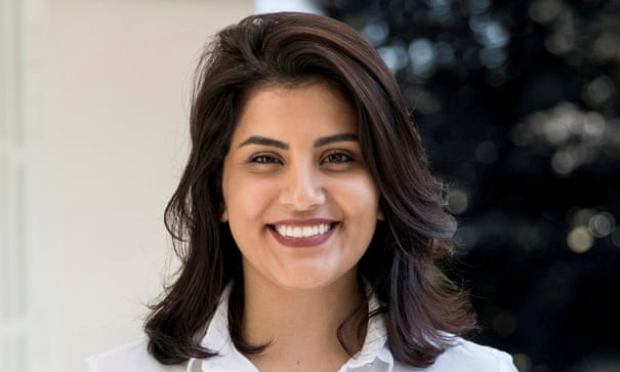Saudi activist who fought for women’s right to drive is sentenced to prison
By Vivian Yee
RIYADH – One of Saudi Arabia’s best-known prisoners, women’s rights activist Loujain al-Hathloul, was sentenced Monday (28) to five years and eight months in prison, capping a 2 1/2-year legal ordeal that rights groups and her supporters called punishment for her political advocacy.
Al-Hathloul was first arrested in May 2018 along with others who had pushed to end a ban on women driving. She was later charged with undermining the kingdom and its political system by communicating with foreign diplomats, journalists and rights organizations and pushing for women’s rights.
The judge suspended two years and 10 months of her sentence. With credit for the time she has already served, her family said, she could be released in about two months. Al-Hathloul was also placed on probation for three years and barred from traveling outside Saudi Arabia for five years.
Al-Hathloul has said that during her time in prison she and other inmates were subject to sexual harassment and torture, including beatings and electric shocks, but a judge last week rejected a complaint she filed about the alleged torture after the government cleared itself of wrongdoing in an investigation that her family said amounted to a cover-up.
Her family had hoped that al-Hathloul might benefit from the impending arrival of the administration of President-elect Joe Biden, who has promised a tougher stance on Saudi Arabia. President Donald Trump has waved off concerns about Saudi political prisoners, but Biden has said he will reevaluate the countries’ relationship and penalize human rights violations, canceling the “blank check” he said the Trump administration had given the Saudis.
But rather than release al-Hathloul as a goodwill gesture toward the incoming administration, the kingdom appeared to toughen her treatment, transferring her case last month to a special court that usually handles terrorism and national security crimes. Still, the sentence she received Monday fell well short of the 20-year maximum that prosecutors had sought.
Al-Hathloul, 31, who went on a two-week hunger strike in the fall to protest restrictions on family visits and other conditions in prison, appeared weak in recent weeks, her family said.
Since her detention began, some of the changes she sought have come to pass, even as the Saudi government moved to extinguish dissent by arresting those it sees as critics.
Women in Saudi Arabia have been allowed to drive since the kingdom lifted the ban in June 2018, one of the historic social reforms inaugurated over the past few years by Saudi Arabia’s crown prince and de facto ruler, Mohammed bin Salman. Under the crown prince, the kingdom has encouraged women to work and loosened the guardianship system that gave women’s fathers, husbands or brothers the final say over their travel, employment and marriage plans.
But along with the changes came an ongoing crackdown on those who failed to fall in line with the crown prince including members of the royal family, businessmen and clerics, as well as activists including al-Hathloul. After capturing international attention by defying the driving ban and speaking out against other restrictions in the kingdom, al-Hathloul and at least 10 other activists were arrested a month before the ban was set to expire, accused of treason in the state-controlled news media.
“My sister is not a terrorist, she is an activist,” her sister, Lina al-Hathloul, said in a statement Monday.
“To be sentenced for her activism for the very reforms that MBS and the Saudi kingdom so proudly tout is the ultimate hypocrisy,” she added, referring to the crown prince by his initials.
Analysts said the timing of Loujain al-Hathloul’s arrest suggested that the government wanted to make clear that change flowed down from the Saudi government, not up from the people.
Saudi officials have dismissed any connection between the charges against al-Hathloul and her activism, instead saying that she was arrested because she was working with foreign entities hostile to Saudi Arabia. The counts against her have included demanding women’s rights and pushing for the abolition of the guardianship system, trying to apply for a job at the United Nations, and speaking to foreign journalists, diplomats and human rights organizations, according to her family.
“There are accusations of dealing with states unfriendly to the kingdom and with providing classified information and other issues like that,” the Saudi foreign minister, Prince Faisal bin Farhan, told Agence France-Presse during a visit to Bahrain this month.
“It’s up to the courts to decide” on the facts, he added, offering no further details.
-New York Times


